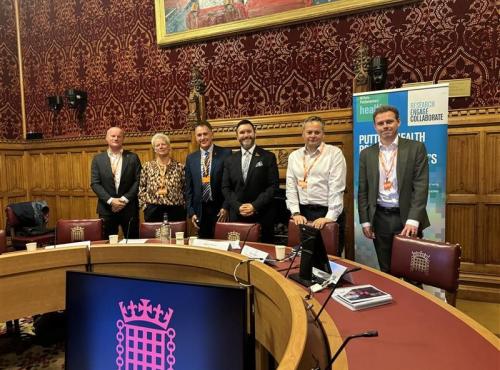Working in policy during an election campaign - how is it done?
For the past three weeks, the UK electorate has been watching political leaders take turns in making both sweeping promises and gaffes, while trying to figure out where to put the cross on the ballot paper on 12 December. In the policy sector, we watch with excitement as we see manifestos published and political debates attended and recommendations included in more political pledges.
Popping the Policy Bubble
To outsiders, the policy bubble can appear like somewhat of a black box during election time. As active policy development and scrutiny in parliament grinds to a halt, both former and prospective members of parliament shift their focus fully towards persuading their constituents to cast their vote for them. While civil service departments and staff continue to work hard to guarantee the general functioning of government during the election campaign, they are not permitted to come near anything that even remotely resembles party-political activity or to undertake any work that diverts public attention from the campaigning efforts of parliamentary candidates.
So, with many policy-makers transfixed by the rules of engagement of the campaign, how does Policy Connect continue to lead the development of new policy ideas through evidence and collaboration?
Behind the scenes
Firstly, the campaign period is an excellent opportunity for review, informal engagement and planning. While the shopfront – Parliament – is closed we busy ourselves with taking inventory and stocking our shelves. A wide range of recommendations from our past work have been included in the different parties’ manifestos and we are preparing to follow up with these promises immediately after 13 December. We are also out and about speaking to many of our 230 supporters as well as civil servants about past and planned work and how Policy Connect can support the next intake of MPs to find their feet and make informed, evidence-based decisions in the new Parliament. We are also currently organising a range of policy events in January which will bring together our supporters from industry, academia and the third sector with new and re-elected MPs to provide an early opportunity for discussing what the policy priorities should be for the new Parliament and Government.
The plan for 2020
Lastly, our ground work on different policy areas never stops and a number of our current inquiries continue to develop and will be ready for engagement with Parliamentarians after 13 December. A few examples include our cross-party inquiry into the future of Energy from Waste, led by my colleague Oliver Feaver which has just launched its call for evidence. This follows on from our Plastic Packaging Plan report and will explore the future for Energy from Waste within the UK’s residual waste management, alongside increased recycling rates and reduced reliance on landfill and exports. Oliver is interviewing a number of stakeholders in preparation for our parliamentary roundtable series in January and February. Elsewhere, my colleague Robert Allen held a session with industry, academia and third sector representatives to refine the scope of our upcoming inquiry into property resilience for new and existing homes. This follows on from our report Bricks and Water, published in 2018 and will focus on identifying best practice across the areas of water efficiency, flood resilience, and the possibility for incorporating these into a mandatory Property Resilience Certificate (PRC) for new and existing homes.
With all eyes on the election as it enters its final weeks, we will be continuing our work to ensure a smooth transition for the new government and those working within it, and look forward to building on our work so far and bringing in 2020 with a packed schedule of policy reports and events.



